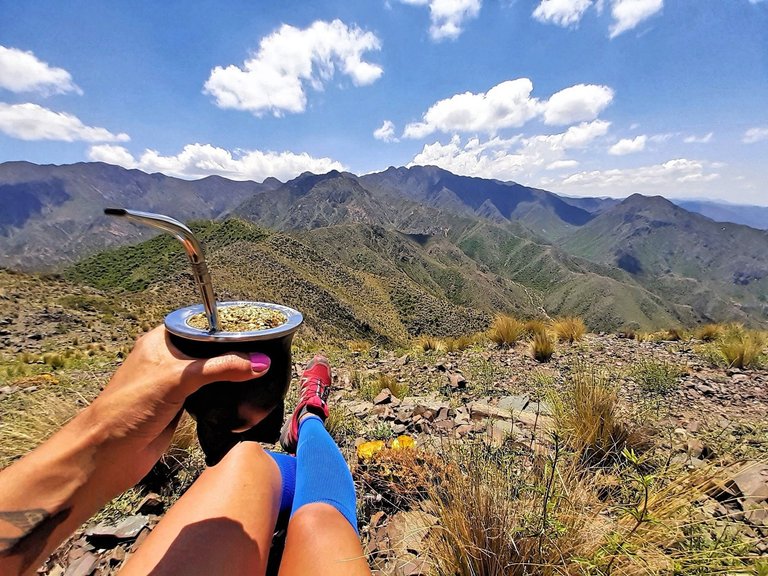
La yerba mate es un cultivo que se remonta a los pueblos originarios de América del Sur, particularmente a los guaraníes, indígenas que habitaban el Sur de Brasil, gran parte de Paraguay y el noreste de Argentina, en la zona denominada Mesopotamia.
Cuando arribaron a Sudamérica las primeras misiones jesuíticas en el siglo XVI, el consumo de la yerba mate creció y se extendió a otras regiones del Virreinato del Río de la Plata, los sacerdotes aprendieron los secretos de su cultivo y consumo, a tal punto que en aquellos años se le denominaba "té de los jesuitas".
Con el correr de los años, la yerba mate pasó a ser un símbolo cultural y un ritual de amistad y reunión en países como Paraguay, Uruguay y la Argentina, también se conocieron los beneficios para la salud que tal planta posee: los efectos antioxidantes y estimulantes para el organismo.
En el día de ayer leí un artículo sobre un emprendedor argentino con raíces rusas que se mudó al frío país del norte de Europa hace muchos años y desde hace 12 años lleva adelante una iniciativa comercial que se denomina Punto Mate, importa desde su país natal, fracciona y distribuye yerba mate, principalmente en Moscú, aunque pretende llevar el producto a todo el vasto territorio de la federación.

Posee puntos de venta y consumo en varios bares de la capital y ha llevado la difusión de este particular producto a otro nivel, ha realizado estudios con la Academia Médica de Moscú y con la Facultad de Farmacopea para la difusión de los beneficios de la yerba mate y en parte también para desmitificar los rumores sobre su relación con algún narcótico, principalmente por su apariencia.
Además de la venta del producto, sus implementos y herramientas de uso como termos, mates, bombillas, ahora también desarrolla tragos, cocktails y pastelería, en verano produce y vende tereré, que es la variante fría y refrescante de la infusión.

Uds. se preguntarán que tiene que ver todo esto con el deporte, con el fútbol en particular.
Según el emprendedor, una gran ayuda para instalar la costumbre e incentivar el consumo en un mercado tan grande, aunque con diferencias culturales enormes, fue ver a Messi, Suarez y Griezmann con el mate y el termo en la mano.
Los rusos son amantes del fútbol y aunque todavía están tratando de conformar buenos equipos y selecciones nacionales para disputar con mayores posibilidades las copas en juego; disfrutan y pretenden ser cada vez más competitivos, mientras tanto admiran a los grandes ídolos mundiales y ver que algunos de ellos consumen el mate quizás los haya llevado a pensar que allí reside una gran parte de la calidad y la destreza en el manejo de la pelota que a ellos se les niega sistemáticamente.

Lo anterior no es cierto, se me acaba de ocurrir; pero si es muy cierto que ver a semejantes jugadores tomar mate los ha incentivado a probar, después de todo es evidente que mal no les hace y así lo han entendido los moscovitas, según datos del propio entrevistado, ya más de 30.000 habitantes de la capital rusa lo han adoptado.
Yerba mate, religion, football and exports
Yerba mate is a crop that dates back to the native peoples of South America, particularly the Guaraní, indigenous people who inhabited southern Brazil, much of Paraguay, and northeastern Argentina, in the area known as Mesopotamia.
When the first Jesuit missions arrived in South America in the 16th century, the consumption of yerba mate grew and spread to other regions of the Viceroyalty of the Río de la Plata. The priests learned the secrets of its cultivation and consumption, to such an extent that in those years it was called "Jesuit tea."
Over the years, yerba mate became a cultural symbol and a ritual of friendship and reunion in countries such as Paraguay, Uruguay, and Argentina. The health benefits of this plant also became known: its antioxidant and stimulating effects on the body.
Yesterday I read an article about an Argentine entrepreneur with Russian roots who moved to a cold country in northern Europe many years ago and for 12 years has been running a commercial initiative called Punto Mate, importing from his native country, dividing and distributing yerba mate, mainly in Moscow, although he intends to take the product to the entire vast territory of the federation.
He has points of sale and consumption in several bars in the capital and has taken the dissemination of this particular product to another level, he has carried out studies with the Moscow Medical Academy and with the Faculty of Pharmacopoeia to spread the benefits of yerba mate and in part also to demystify the rumors about its relationship with some narcotic, mainly due to its appearance.
In addition to the sale of the product, its implements, and tools of use such as thermoses, mates, and straws, now he also develops drinks, cocktails, and pastries, in summer he produces and sells tereré, which is the cold and refreshing variant of the infusion.
You may wonder what all this has to do with sport, football in particular.
According to the entrepreneur, a great help in establishing the custom and encouraging consumption in such a large market, although with enormous cultural differences, was seeing Messi, Suarez, and Griezmann with mates and a thermos in hand.
Russians are football lovers and although they are still trying to form good teams and national teams to compete with greater chances for the cups at stake, they enjoy it and aim to be more and more competitive, meanwhile, they admire the great world idols and see that some of them drink mate may have led them to think that therein lies a large part of the quality and skill in handling the ball that they are systematically denied.
The above is not true, it just occurred to me, but seeing such players drinking mate has indeed encouraged them to try it, it is obvious that it does not do them any harm and the Muscovites have understood this, according to the interviewees own data, more than 30,000 inhabitants of the Russian capital have already adopted it.
Héctor Gugliermo
@hosgug
